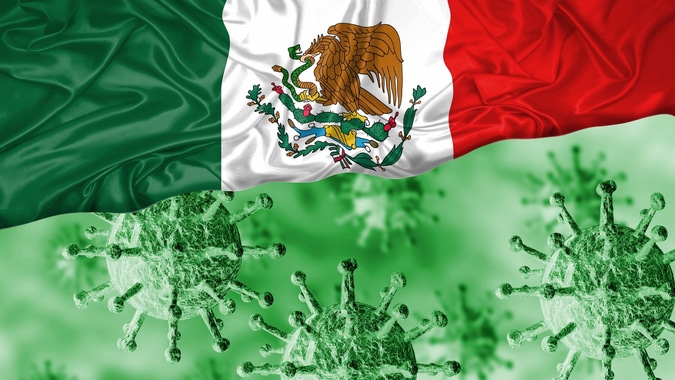This article was translated from our Spanish edition using AI technologies. Errors may exist due to this process.
The General Directorate of Epidemiology through the Institute for Epidemiological Diagnosis and Reference (InDRE), released today the information of the first positive case of the Omicron variant of Covid-19 in Mexico.

Depositphotos.com
Through its page, the Ministry of Health reports that so far, the people who had contact with this first case of the Omicron variant in Mexico do not register symptoms, warning signs or positivity for the SARS-CoV-2 virus.
The first person in Mexico to whom the new Omicron variant was detected is 51 years old and of South African origin. It is reported that he arrived in Mexico on November 21 and, six days later, presented symptoms characteristic of mild COVID-19.
According to the Ministry of Health, the affected person already received medical attention in a private hospital in Mexico City on November 29. The antigen test and RT-PCR were positive; When he arrived at the emergency room for evaluation, he was stable with saturation of 95 percent. He is currently in voluntary preventive isolation.
Test results in the first Omicron case in Mexico
On November 30, InDRE received the sample, where it began its analysis with the new protocol established on November 26.
The Ministry of Health reported that the preliminary results are positive for the N2 gene, and it is observed that the sample has a failure in the S gene target: negative for the S gene, positive for the ORFab gene and positive for the N gene, characteristics of the variant Omicron.
The Omicron variant was found by genomic surveillance works carried out throughout the country, coordinated by the National Network of Public Health Laboratories of Mexico (RNLSP), according to information from the Ministry of Health.
Scientific research work continues in Mexico and in the rest of the world in search of more information on the Omicron variant such as transmission patterns, severity, clinical characteristics and risk factors. Meanwhile, the WHO continues to recommend vaccination against COVID-19 to reduce the frequency of serious illness and risk of death.
The Ministry of Health invited the population not to be alarmed and to continue applying sanitary measures to avoid contagion of COVID-19: healthy distance, use of face masks and frequent hand washing, in addition to sheltering and eating healthy in this winter season.